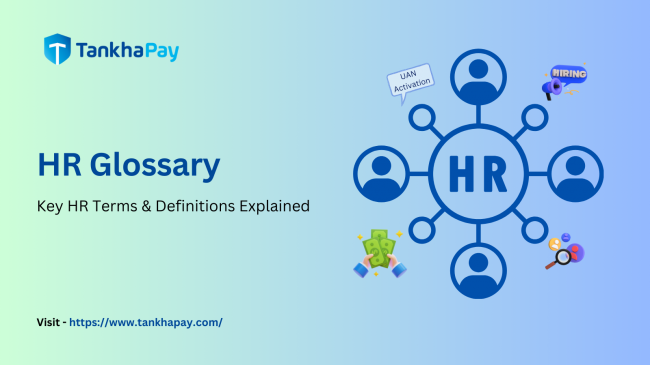An appraisal letter is more than just a paper distributed at the end of a cycle in a performance review. It helps an organisation recognize employee contributions, encourages them, and aligns employees' personal goals with the organisation's vision.
Whether it’s a pay increase, promotion, or result of giving feedback, the paper stands as a testimonial of commitment from the organisation toward its people.
This blog will address what an appraisal letter is, its essential elements, its overall impact on employees and organisations, and finally, the best practices for creating one.
What is an Appraisal Letter?
An appraisal letter is official correspondence from the employer to the employee, which usually comes out right after a performance review. It merely becomes an acknowledgement of employees' efforts, their achievements and communicates decisions on pay raises, promotions, bonuses, or other benefit opportunities.
They are milestones in the cycle of performance management because they establish the growth of an employee during their tenure with a particular organisation.
A good appraisal letter should ideally be brief, precise, and motivational. Below are the fundamental parts of an appraisal letter:
Employee Information
It would begin with the name of the employee and the position in the organization. It should include relevant information such as the employee's ID or department, bringing a personal touch to the letter while being professional.
Acknowledgement of Performance
Identify the employee's successes across the review cycle. Define specific projects, achievements, or qualities contributing to business success.
Feedback and Areas for Improvement
Constructive feedback is the key to growth. While appreciating what the employee has achieved, give areas where the employee needs improvement. Ensure that this is said in a positive way:
"We encourage you to continue improving your time management skills so that you can work on bigger projects more efficiently."
Decision of Appraisal
Clearly state the outcomes of the appraisal:
- Percentage of salary increase.
- New job or promotion.
- Additional incentives or rewards.
Future Objectives and Prospects
Recap the company's promise to the employee's future career. State future objectives or training opportunities aligned with their career goals.
Appreciation and Support
End with an appreciation of their work and a positive attitude towards their future in the company.
Why Appraisal Letters Matter
Employee Motivation
Formal recognition of work effort motivates and keeps the employee productive. Employees become more interested and dedicated when they feel appreciated.
organisational Transparency
Performance appraisal letters are part of an open and fair performance review process. This creates trust between the management and employees because expectations, results, and rewards are well-defined.
Legal Documentation
In case of disagreements or court cases, an appraisal letter becomes a formal document of performance-related decisions. The letters ensure transparency while promoting the interests of both the employer and the employee.
Best Practices in Writing Appraisal Letters
Writing an appraisal letter is about being detailed and emotionally intelligent. Here are some best practices:
Be Specific and Genuine
Generic praise must not be used. Instead of saying, "You did a good job," provide specific accomplishments:
"You have led the onboarding of 50 new hires. They spent 30% less time in training."
Be Positive at All Times
Even if you are addressing areas for improvement, make sure the feedback is constructive. For example:
"You do excellent work in analyzing the situation. To maximize impact, we recommend improvement of presentation skills."
Maintain a Professional yet Warm Tone
The tone has to be formal yet warm since the review is essential and is a form of appreciation by the organisation.
Link to Organisational Goals
Connect individual achievement to larger organizational goals. This enables employees to understand their position in the organization's success.
Offer Actionable Next Steps
Provide guidance on how employees can grow further. For example:
"We recommend our leadership development course as preparation for management levels."
Deliver Timely Feedback
Ensure that appraisal letters are delivered to employees immediately following the evaluation process. This keeps comments fresh and impactful.
Maintain Confidentiality and Privacy
Appraisal letters must remain confidential. Conversations about salary increases or promotions in the workplace can be sensitive.
Impact of Appraisal Letters on Employee Motivation
Building Confidence
An appraisal letter validates an employee’s work and confirms their belief in their skills. When employees feel valued, they contribute more willingly toward organisational goals.
Promoting Retention
organisations that recognize and reward performance effectively tend to have lower turnover. Employees are less likely to explore other opportunities when they feel valued and appreciated.
Improving Productivity
Employees strive to perform better when motivated by an effective appraisal system. This naturally improves team productivity and overall business success.
Fostering Trust
Regular and transparent performance reviews coupled with honest appraisal letters create an environment of trust between employees and management. Employees are more likely to embrace feedback and work on improvement areas when they perceive the organisation as genuinely concerned about their development.
Role of HR Technology in Appraisal Letters
HR technology has a revolutionary impact on streamlining and improving the appraisal process. In this approach, the appraisal process is not only exact and quick but also informative to both employees and organizations. Here's how HR tools contribute:
Tracking Employee Performance
The present HR system contributes advanced features for tracking employee performance. With these tools, managers are enabled to:
Track how much progress is being made towards goals and milestones.
Record KPIs and achievements through the appraisal cycle.
Know where employees are successful and where they need help.
By leveraging such data, appraisal letters become more precise and impactful. Employees value acknowledgment based on concrete, measurable achievements, which boosts their trust in the appraisal process and motivates them to perform better.
Automating Appraisal Letters
The integration of HR automation tools has substantially improved the efficiency with which assessment letters are prepared. Automation guarantees consistency, efficiency, and customisation. Key advantages include:
Data-Driven Appraisals: HR tools aggregate performance metrics and produce reports that help in appraisals. This minimizes human mistakes and guarantees that decisions are made using validated data.
Custom Templates: Organizations can create templates for various jobs, departments, or performance levels, ensuring that assessment letters follow a consistent framework while containing unique material.
Timely Distribution: With the help of automated workflows, HR teams can deliver appraisal letters timely after the review process. Thus, the feedback received through it is fresh and effective, reminding employees of what they have to do with their performance and rewards.
Employee Engagement: The automated procedure facilitates the transfer of future goals, training plans, and professional development opportunities within the assessment letter, bringing them closer to the organization's goals.
Conclusion
Appraisal letters have grown into powerful instruments rather than mere formalities. Through thoughtful communication and the most advanced HR technologies, organisations can improve the process of appraisal to help create engagement, motivation, and long-term success.
A strong performance management system tied in with HR tools will make the employees feel valued, appreciated, and motivated to contribute more. If you are a manager or an HR person, embracing technology to create comprehensive, personalized, and timely appraisal letters is a step toward fostering a motivated and high-performing workforce.

















